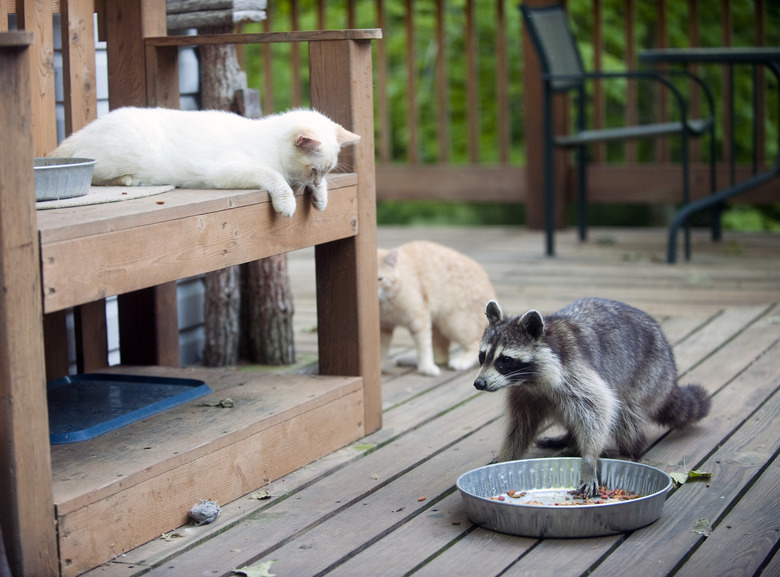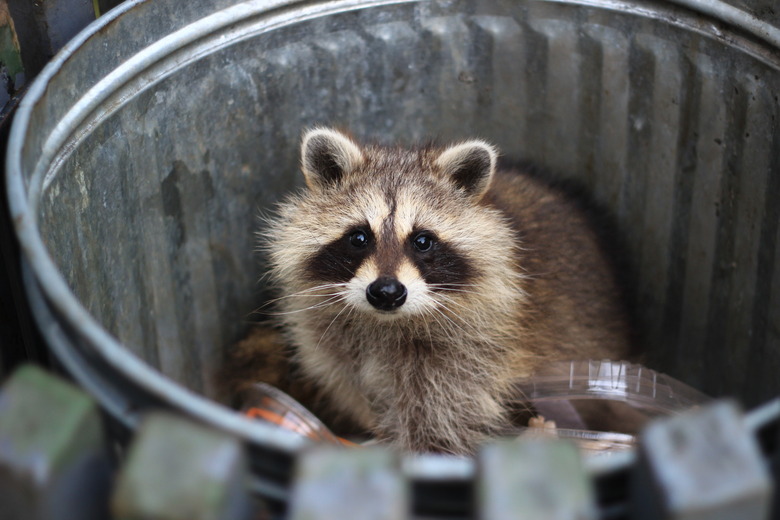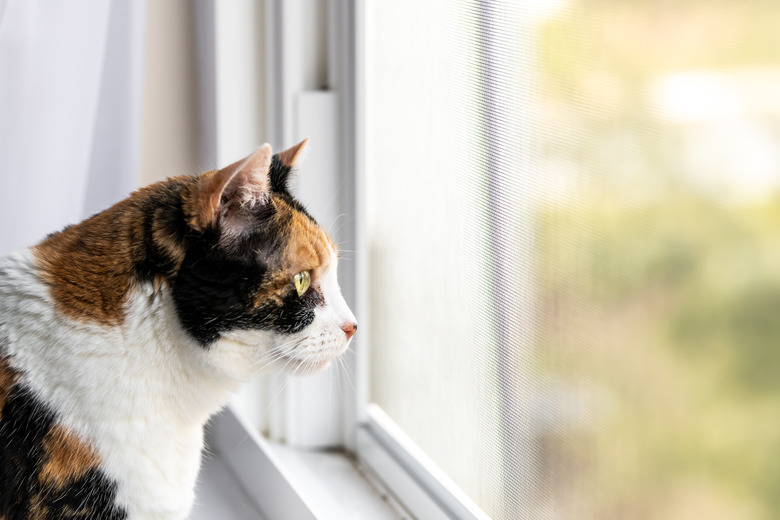Can Cats And Raccoons Really Be Friends - Or Enemies?
Evidence of unlikely animal friendships is pure internet catnip. Giant dog cuddling a tiny duckling? Yes, please. Capybaras cuddling with literally everything in the animal kingdom? A little confusing, yet undeniably adorable.
By that logic, cats and raccoons should make the quintessential odd couple: they both enjoy causing chaos outside, love to eat (mostly garbage), and constantly give mixed messages about whether or not they're planning to murder you. It's a match made in heaven or hell, depending on how you look at the situation.
But can cats and raccoons actually be best friends? They may seem potentially compatible, but they're not exactly known for their predictable nature.
A cursory google search for "can raccoons and cats be friends" yields ambiguous results, as some Twitter users discovered in January of 2020.
"A raccoon and a cat can be friends, but they can also be enemies." Raccoons in the Attic, a company that specializes in humane raccoon removal, notes on its website. "A raccoon is a curious animal, but mostly it is interested in finding food, so if it appears that the raccoon is a friend of your pet cat, it's likely actually friends with the cat's food!"
Raccoons are indeed curious — and hungry. According to wildlife biologist Imogene Cancellare, these critters aren't BFFs, but raccoons may be willing to broker a detente with cats if it means they chow down together.
One thing cats and raccoons definitely have in common is they're both shrewd little fluffs; almost all their decisions are guided by food, garbage, or both.
"[Cats and raccoons] aren't enemies per se," Cancellare told Cuteness. "Many carnivores share space, at the same time, and if there's ample food they'll often tolerate one another. They aren't enemies, but most carnivores have limited tolerance for other species outside of mutually beneficial events."
Mountain lions share their kills with other lions, and those lions are more likely to share with them in return if communal feeding has happened, Cancellare added. Even badgers and coyotes have been known to hunt together.
But still, that hardly counts as a friendship. It's much more cold and transactional, like, "Hmm you look scarier than me, but we're both hungry, so I'm gonna let you eat in peace. Please don't attack me, thanks."
Or something like that.
"It comes down to territoriality and tolerance," Cancellare said. "I think raccoons would edge out domestic cats in terms of being aggressive."
Cat owners know that while their fur babies are certainly cute and fluffy, kitties can be ferocious. After all, they are stone-cold killers in the wild. But raccoons can lash out when they feel threatened, and their nimble little hands are no joke. Though they don't have opposable thumbs, raccoons have dexterous paws that can move super quickly, to swipe an attacker or steal their food.
While raccoons and cats may not immediately pounce on each other, it's much better for surrounding wildlife and the cats themselves to remain indoors. Research says outdoor cats kill between 1.4 and 3.7 billion birds each year in the continental U.S. alone. A recent study showed outdoor cats in Australia kill about one million birds per day.
Raccoons can cause real harm to roaming cats and other animals, as they are considered a primary carrier of the rabies virus, according to the Humane Society of the United States. Keeping your kitties indoors and far away from raccoons is the best way to ensure their safety.
While raccoons and cats could maybe, possibly, potentially tolerate each other, it's best not to find out. They are business partners at best, begrudgingly working toward the same goal: eating your trash.



